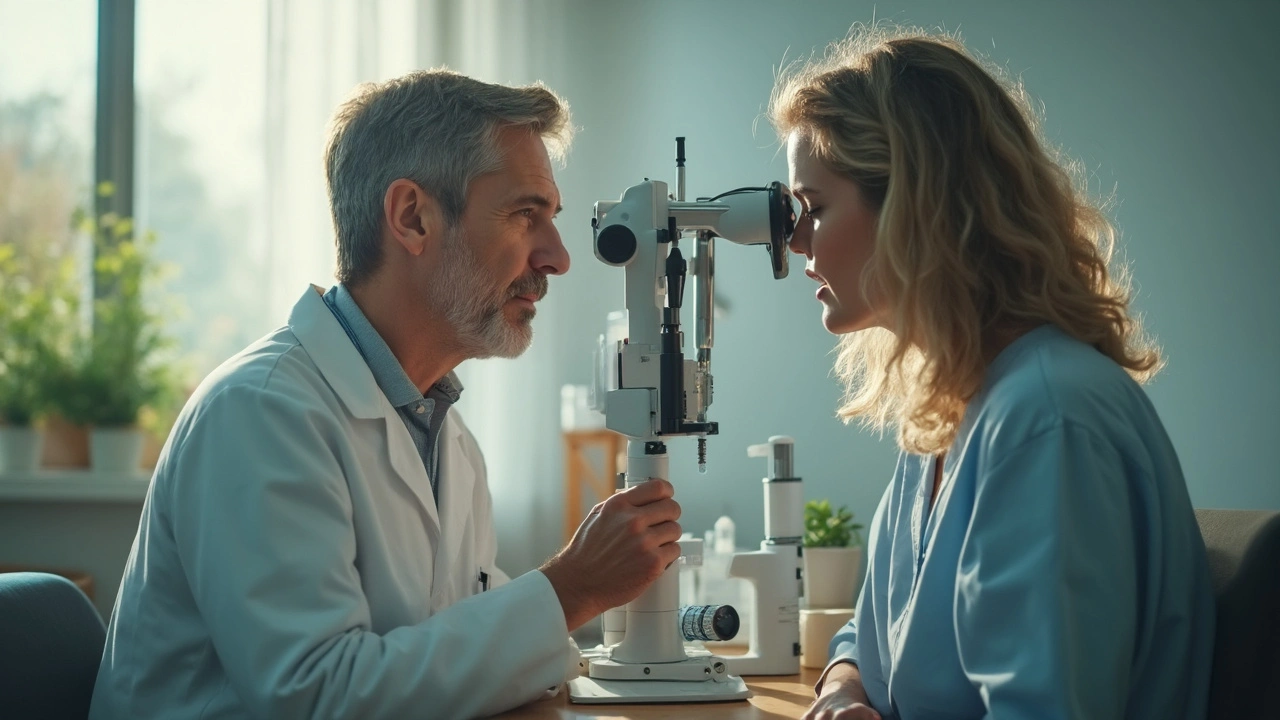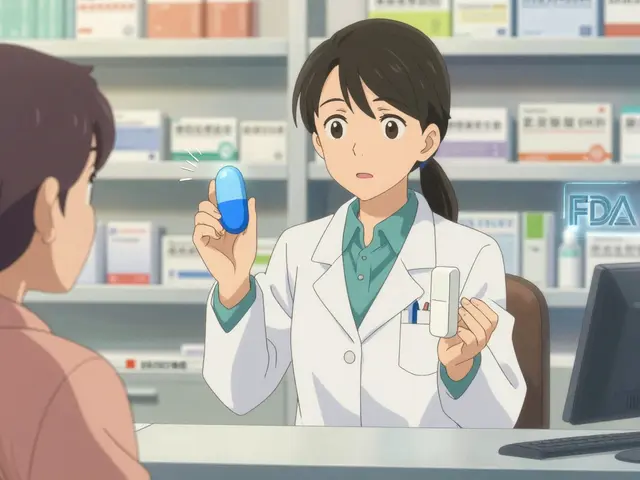Eye Pressure: What It Means and Why It Matters
Ever wondered why people keep talking about eye pressure? It's a simple but important thing that can affect your vision. Eye pressure, also called intraocular pressure, is the fluid pressure inside your eye. Too much pressure can cause problems, like damaging the optic nerve, which carries images from your eye to your brain. This damage often leads to glaucoma, a serious eye disease that can cause vision loss.
Keeping eye pressure in check is key to protecting your sight. But here's the catch: many people don’t notice any symptoms until it’s too late. That’s why regular eye exams are super important, especially if you’re over 40 or have a family history of eye issues. Your eye doctor can measure your eye pressure quickly and painlessly and spot early signs of trouble.
How Eye Pressure Works and What Affects It
Your eyes constantly produce a fluid called aqueous humor, which nourishes your eye and keeps its shape. This fluid drains out through tiny channels, balancing eye pressure. If the fluid builds up because the drainage is blocked or slow, pressure inside your eye rises. This pressure build-up is what can harm your optic nerve over time. People with high eye pressure might not notice anything wrong until the damage starts, which is why monitoring is crucial.
Several factors can influence your eye pressure. Age, genetics, certain medications, and health conditions like diabetes can play a role. Even lifestyle matters: things like caffeine intake and stress may cause small pressure changes. However, the most reliable way to know your eye pressure is through a professional check-up. Don't wait for symptoms — they often come when damage is already done.
Simple Tips to Support Healthy Eye Pressure
If you want to keep your eye pressure within a healthy range, several practical steps can help. Stay active with regular exercise, which improves blood flow and might lower pressure naturally. Maintain a healthy weight and avoid smoking since these factors help your overall eye health. When it comes to diet, foods rich in antioxidants, like leafy greens and fish, support eye function. Also, avoid excessive caffeine intake, as it can temporarily raise eye pressure.
If your eye doctor prescribes medication to lower eye pressure, take it exactly as directed. Skipping doses can let pressure sneak up again. Lastly, protect your eyes by wearing sunglasses in bright light, and don't rub your eyes hard. Simple daily care and regular check-ups can make a huge difference in preserving your vision for years to come.

Why Monitoring Eye Pressure is Crucial for Diabetics
Regular eye pressure monitoring is essential for diabetics to prevent serious eye complications like glaucoma. Since diabetes can affect blood vessels in the eyes, maintaining eye health should be a priority. Learning about eye pressure and its impact can help diabetics take proactive steps to safeguard their vision. Consistent monitoring and medical check-ups can aid in early detection of potential issues. With proper attention and care, diabetics can reduce their risk of eye damage.
Continue Reading



